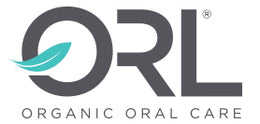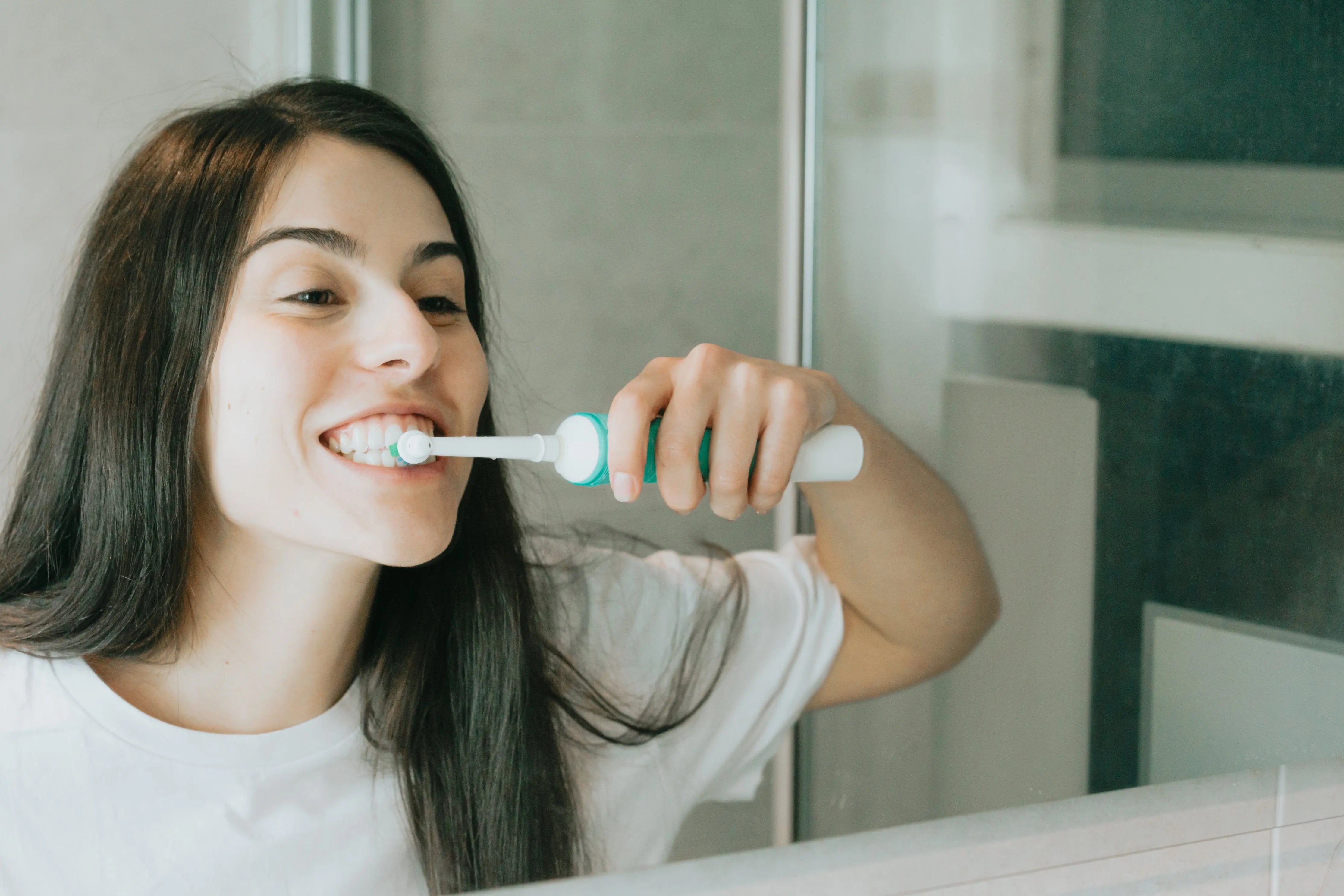If you aren’t specifically looking for vegan toothpaste or mouthwash, there’s a good chance what you’re using contains animal products. They’re slipped into things you use every day, often without disclosure on the label. Below, we’ll explore how and why this happens as well as the benefits of choosing vegan toothpaste and how to ensure your products are plant-based.
What’s Not Vegan About Toothpaste?
Although not all toothpastes and mouthwashes contain animal products, they’re hiding in plain sight on some ingredient lists.
Glycerin
You’ll find glycerin in many traditional and “natural” toothpastes. It’s primarily used to help products retain moisture but it’s also often responsible for the texture of many toothpastes. We specifically mention it on our list of harmful ingredients found in oral care products because PubChem notes that it’s a skin, eye and respiratory irritant. However, it’s a worrisome ingredient for vegans for another reason as well—it can be produced from either animal or plant sources. Product manufacturers are not required to disclose which type they use and most don’t.
Flavors and Colors
Oftentimes, you’ll see the words “flavor” or “color” on an ingredient list. The ambiguity is intentional. The mixtures can be made from virtually anything, including animals. One of the most famous examples is carmine. “Anytime you see an ingredients list that includes carmine, cochineal extract or natural red 4,” cautions Live Science’s Luke Yoquinto, “you can be sure that there's a little powdered bug therein.” Sneaky manufacturers may refer to it as cochineal, crimson lake, carmine lake, C.I. 75470, or E120 as well.
Vitamins and Minerals
Calcium Carbonate and Vitamin B12 are among the many that can come from either animal or plant sources. Vitamins and minerals like these are often included in natural oral care products to help remineralize teeth or promote oral health.
Suffice it to say, ORL’s line of oral healthcare products is vegan. Not only do we not use harmful ingredients like glycerin, but we only use plant-based ingredients as flavors, colors, and fortifiers.
Why Should I Choose Vegan Toothpaste?
Health
Research compiled by Rush University Medical Center that maintaining a vegan diet can reduce the risk of heart disease by lowering cholesterol, help people manage diabetes by lowering A1C levels, reduce the chances of developing specific types of cancer, promote weight loss, and more. If you’re maintaining a vegan diet for these reasons, it only makes sense to continue the choice with the other things you consume.
Environment
Many people look purely at how much land is being used to raise livestock and can make an environmental case on this alone, but Matt Reynolds of Wired says it goes much deeper and draws on the UN’s research which notes that 33 percent of all croplands are used to grow feed for livestock on top of it. This, paired with the corresponding greenhouse emissions and pollution spell out major trouble for the planet. “Water pollution from animal waste and fertilisers can also end up choking lakes of oxygen, poisoning fish and degrading water supplies,” he explains.
Compassion
“In every ‘livestock system’, no matter how high the welfare standards are supposed to be, non-human animals will suffer,” say representatives from the Vegan Society. The Five Freedoms, frequently used to measure welfare, will never be met completely.”
Personal Reasons
Due to religious observances, philosophical beliefs, and for countless other personal reasons, more people are becoming vegan. Some sources say six percent of the population was already vegan by 2017, a massive jump from one percent in 2014, though a recent Gallup poll places the number at a more conservative three percent.
Are Vegan and Cruelty-Free the Same Thing?
While many say being vegan and cruelty-free go hand-in-hand, they’re different concepts.
Vegan: “Using or containing no animal products.”
Cruelty-Free: “Manufactured or developed by methods that do not involve experimentation on animals.” (Oxford)
The former refers to an absence of animal products and the latter means that a product or its ingredients weren’t tested on or developed with animals. That in mind, you’ll want to search for products that specifically say they’re both vegan and cruelty-free if you want to be sure that animals weren’t harmed or used in the production or testing of a product you’re purchasing.
ORL proudly produces cruelty-free products. We don’t test on animals.
What Should I Look for in a Vegan Toothpaste?
Research on vegan diets is conflicting in some respects, largely because people on plant-based diets aren’t necessarily consuming the same things. So, although most research indicates a plant-based diet can reduce inflammation throughout the body, which would explain why vegans and vegetarians tend to have lower rates of cancer and other inflammation-related diseases (like periodontal disease!), a person exclusively consuming fruit juices isn’t taking in the same nutrients as someone who has a diet rich in leafy greens and legumes, for example.
To that end, it’s easy to see why some vegans and vegetarians would be missing out on key nutrients and may even be consuming far more acidic foods than their peers. That in mind, a vegan might benefit from improved periodontal health due to reduced inflammation but could also have a higher oral pH.
“Lactovegetarians were much more likely than age- and sex-matched controls to have dental erosions on some tooth surfaces, lower salivary pH levels, and lower stimulated saliva flow,” says the American Journal of Clinical Nutrition in reference to a cull of research. The findings transfer to vegans as well. It’s because of this that people avoiding animal products will want to focus on three key areas while choosing a vegan toothpaste.
pH Balance
In short, plaque and bacteria thrive in acidic environments and teeth will demineralize when oral pH drops below 7.0 too. However, as balance is restored, teeth will naturally remineralize by absorbing nutrients in your saliva. Keeping a neutral 7.0 pH, or restoring it as often as possible, is beneficial for anyone concerned about tooth decay and periodontal disease, but those who consume lots of acidic foods and beverages like coffee, juice, tea, and energy drinks, will want to put even more focus on maintaining balance. Unfortunately, many oral health care products are acidic, which can increase demineralization and raise your risk for tooth decay. Always be sure to check that the products you’re using promote balance.
ORL’s proprietary formulas were mindfully crafted around creating a perfectly neutral 7.0 pH, creating the optimal environment for oral health. To learn more about the demineralization process and how to stop decay, read “The Benefits of 7.0 pH for Oral Health.”
Calcium and Vitamin D
It may go without saying, but calcium is one of the major building blocks in healthy bones. It’s not only essential for the development of a strong jaw and teeth, but aids in the remineralization process too. Vitamin D helps the body absorb it better. Most of the general population gets these nutrients through dairy products. Vegans have to be mindful they’re consuming enough calcium-rich leafy greens and legumes to get adequate nutrition. You can easily give your teeth an extra boost by selecting a calcium and vitamin D fortified toothpaste.
Because we’re dedicated to fortifying teeth naturally, calcium and vitamin D are included in ORL products. To learn more about these and other essential nutrients, check out “15 Must Have Vitamins & Minerals for Optimum Oral Health.”
Transparency
As highlighted earlier, product manufacturers can hide animal-based ingredients in plain sight using alternate phrasing to avoid detection. Look for products that specifically say they’re vegan or contact the manufacturer to confirm.
If You’re Going Vegan, Get ORL
Animal products appear in all sorts of places you wouldn’t expect and it’s not always clear what’s in something by reading a label. At ORL, we’re picky about what goes into our oral health products, which is why we proudly craft cruelty-free vegan toothpastes and mouthwashes. From our mouthwatering flavor profiles produced with 100% plant-based essential oils, through our tooth-fortifying vitamins and minerals, we’ve made the mindful decision to go vegan. If you have too, view all of our vegan toothpastes and mouthwashes and nourish your smile the way Mother Nature intended.



